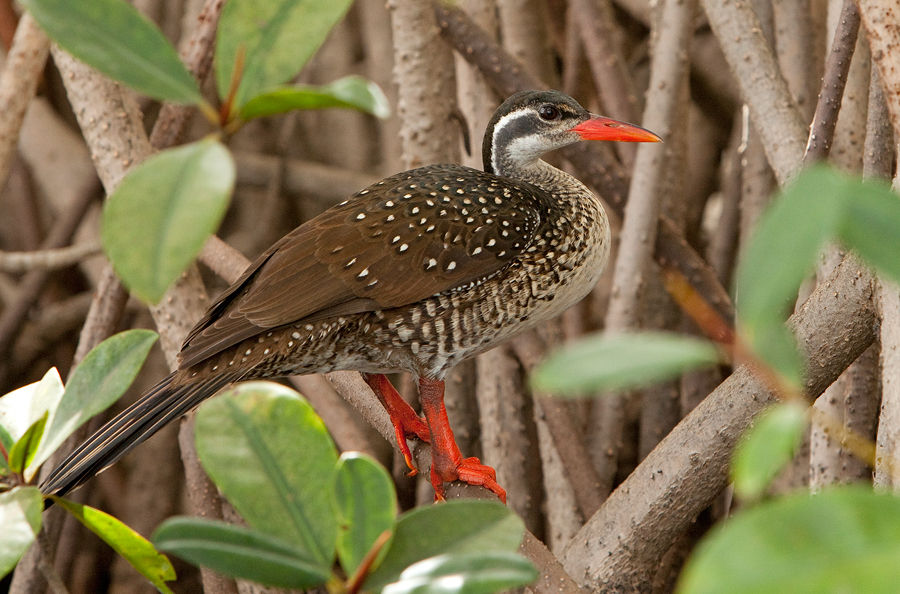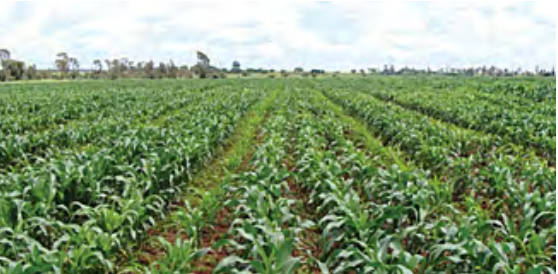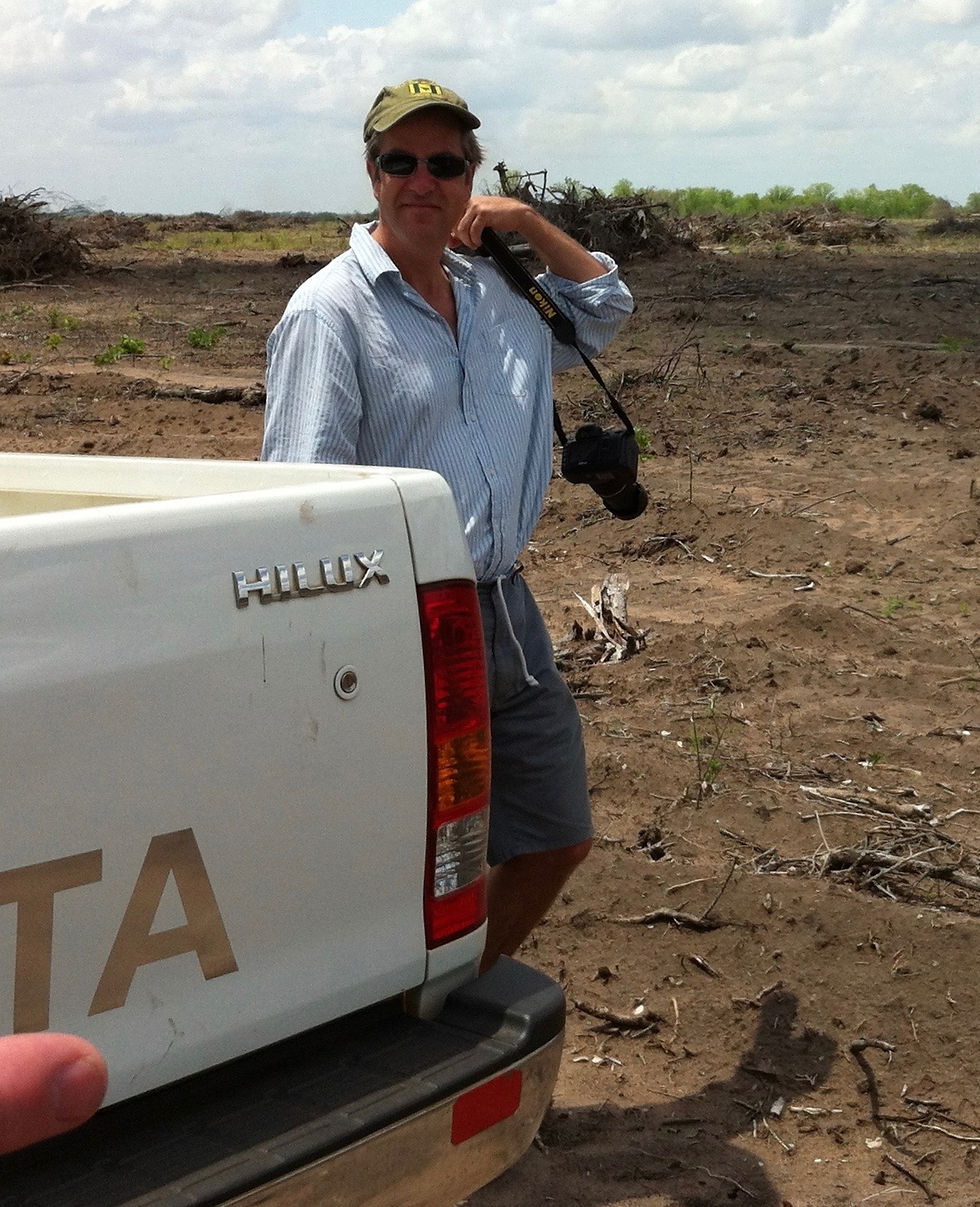
That is what it is. Up until last weekend, we spent our time in the Northern Suburbs of Harare venturing only to the fringes of the CBD. We ensured we travelled well after the morning rush hour and left before the ‘home time’ rush. We made the mistake one day of setting off for home late and spent two and a half hours stationary in traffic. Last weekend we set off for Lake Mutirikwi to stay with Dave and Lisa Clements. This required us to pass through the infamous Mbudzi (Chitungwiza) Roundabout on the Beatrice, Seke Road junction. Pandemonium. A literal free for all, in all directions. We were lucky it did not take us too long, incident-free, except for a few near-miss collisions. I have found it best to shut your eyes and just keep going, everyone else is. They were at speed, me at a crawl. Once out of town, the trip was uneventful passing through many desolate farms. Beatrice and Gutu are still small villages while Chivu (Enkeldoorn) has grown substantially and chaotically. The other common denominator in all Zimbabwe towns and villages is they not only lay claim to many potholes, but they also generate a lot of rubbish, dumped in the most convenient spot for the dumper. The biggest culprits seem to be fast food outlets and their clients. Their clientele all feel they can hit the refuse bin from two metres or more away. Missing does not deter them from trying the same trick every time they make a purchase. Meanwhile, often just outside a place of residence or business, there lies uncollected rubbish. Bins or skips have obviously long disappeared. Of course, dustbins cannot be left as they are handy as a receptacle for those with nothing.
“If you have rubbish, dump it on the street next to your neighbour’s gate.” - Unknown Zimbabwean
Once at the lake, David and Lisa’s house, I realised I had been mistaken not to have visited this wonderful beauty spot more often. Mutirikwi, after Kariba, is I think the most scenic lake in Zimbabwe, although man-made. It is particularly attractive now that it is full. David, on our first morning after a pleasant meal and too much drink, the previous evening (I went over my two-drink limit) took us around the area in the morning including a visit to the Glenlivet Hotel which is being resurrected after renovation. That afternoon we went on a combined fishing, birding and game viewing trip. We caught only small bass, saw many birds. Birdlife is prolific there, including African Finfoot (Podica Senegalensis) a prized sighting for most birders, with the highlight being the spotting of two white Rhino on the lake banks. We also saw a single wildebeest, warthogs, buffalo and some monster crocodiles just to remind us we were in Africa. The following day was miserable and cold, Saturday 28oC August, Sunday 9oC degrees. A real shock to the system.

Unperturbed, we set off by car to circumvent the lake, visiting the dam wall and many of David’s youthful haunts. We stopped at the old Murray McDougal house, now a lodge where I jokingly demanded scones with cream and jam. To my surprise, they produced fresh scones and proper strawberry jam. No cream though for which they apologised. Africa always surprises you. The gardens are still maintained beautifully, well worth a visit.
We were sad to leave David and Lisa’s home on Monday morning to set off for Harare, this time to Wayne and Joey Marias at Irvine’s poultry farm at Waterfalls. Back to road chaos. Dropping our bags, we set off for town returning stupidly after 4 pm. Big mistake. Chaos describing the traffic exiting through Southerton is too mild. Pandemonium is much more appropriate. Two-lane demarcated roads become eight lanes in either direction with the right of way being taken by the bravest or should I say the most stupid. All future trips were carefully planned, despite this, it does not always guarantee a trouble-free trip. Despite our hosts' wonderful hospitality, it made us yearn for the quiet disciplined traffic of Portugal. Funny, our British neighbours think Portuguese driving has issues, little do they know!
“When I first moved North of the Zambezi, the further North I went, the traffic in the cities became progressively worse. Short distance car trips in Accra, Kinshasa, Kampala, Dar-es-Salaam and Nairobi may have been short in distance, were certainly not in time. I think this phenomenon has reached the Mediterranean, as it is now reversed fast heading South presumably having run out of places in the North. While Zimbabwe is as yet not so bad if the economy starts to recover, its good citizens have no idea what is in store for them.” - Peter McSporran
We completed the sale of the house this week, thanks to Sharon van der Nest, our capable estate agent and Ian Franceys, our lawyer, for the expedient conveyance. We will miss the house while being glad to be finally out of Zimbabwe. This is our last asset with a window to be paid externally. Of course, we have a number of farm titles in our safe at home, but what are they worth?

This week we met many friends including Jenny Lovell, our ever-reliable friend and travel agent, Sandy and Jane Irvine, Robert Smith, the grandson of my first boss in Zimbabwe, Ann and Stan Connon, Benilda Wilson who has been looking after our house banking, Susie Heyns. Her parents the Elson’s will be remembered by many, especially as the senior cattle stewards at Salisbury Show’s younger daughter. Sandie Roberts ex-colleague and friend, Phil and Lee Vermaak and finally Rob and Leslie Duncan.
Farm Assistant Days
Once suitably kitted out to work on a Rhodesian farm, I spent the first month settling into my new Rhodesian home in my bosses house. Hamish and Jean had a wonderful new home where I was spoiled by excellent cooking. Jean was an excellent cook, her skills she shared with her staff, Rice and Peter. Rice was an excellent chef but Peter at best could be described as a breakfast cook. Porridge and eggs were his limit. I became addicted to Jean’s chocolate fridge cake. Never before or since have, I tasted better. My obvious enjoyment of this must have pleased Jean as she always ensured it was available at tea time, even many years later when I would visit the family sociably. Unfortunately, the elder Smiths are both deceased, returning to Scotland after the farm disturbances. Alistair the eldest son now lives in Australia with his wife Fiona while David with his wife Lilly now lives with their family in America. Both lived at home, although boarding in Salisbury during school term. Their sister Margaret, now remarried following her husband Lindsay’s death, still lives in Zimbabwe married to Nick Swanepoel.
“The attraction of any country is the people. Yes, we can all enjoy the climate, wildlife and scenery in many African countries but if the people are unwelcoming it casts a shadow on the whole country. Equally if the leaders are corrupt, ignore the rule of law and govern through intimidation it sets the tone of the countries welcome regardless of the nature of the people”.Peter McSporran
The routine of that first month would set my schedule for the rest of my farming life. Rise before first light, have tea and head out to supervise roll-call and set the tasks for the day. The exception was the dairy, which started at 3 am as the cows were milked three times a day. I did not have to attend that early morning event, although the siren always woke me. My job did not entail simply allocating tasks, it also required the supervision of the commencement with the inspection on completion of each task. Once tasks were set, orders for ‘town’, such as spares and inputs were placed with the truck driver, then we would return for breakfast at 7 am. Start in summer would be before 5 am, while in winter, although still dark, would never start later than 6. If we were planting or detasseling seed maize, breakfast would be taken in the lands. Breakfast always started with either mealie (maize) meal or Maltabella (sorghum) porridge followed by an English breakfast. For the first week, I could not understand how the next course arrived at mealtimes as if magically when the last person finished the last course. The mystery was a bell press hidden under the carpet at Jean's feet. Of course, in those days it was Mr and Mrs Smith, not Jean and Hamish. Lunch was at twelve, then we were expected to be at work until the last task was done on the farm, which was the completion of the last milking between six and seven.
My first job to supervise, or should I say learn was how to ‘rogue’ seed maize. It was a crop of R200. I remember clearly as it was the first time I had ever seen a maize plant up close. We had to remove the plants, if I remember correctly, that had red silks, for the life of me, I could not distinguish between them. It was pouring rain with the maize leaves drenching me, whilst scraping my face. Maybe harvesting sugar beet in the frost had not been so bad. The Smith’s seemed to grow a lot of seed maize that year, as we appeared to detassel maize for about four weeks. In those days, there were two dominant varieties R200 and SR52.

My main mode of transport was a motorbike to get around the different working groups or tractor operations. This was common then. If I had to carry equipment or people, then I could use an Isuzu Wasp, whose 24V battery system ensured it rarely started. No four-wheel-drive, Hamish drove a 1000cc Daihatsu at work and a Peugeot 404 station wagon for ‘town’. He was a very large successful farmer. No Toyotas in those days of sanctions. How the days and priorities have changed.
After the first month, I moved into a cottage up at what was known as the ‘top section’. This was about one and a half kilometres up the road. Not far, but on a dark cold winter morning, a very chilly trip. While in the summer, rain and insects were a hassle. You did not use the Wasp to go home with, which stayed at the workshop. My cottage was a one-bedroom, more than adequate for my needs. The only hassle was that the cooker and all the taps were live with electricity, so it required a tyre to stand on to cook, not my problem, the cooks, or run a bath and brush one's teeth, my problem. I was provided with a cook, by definition only, and a gardener. I cannot remember the cook’s name, while Josum the gardener remained with me until we lost the farms in 2001. By then, he was a senior employee who grew excellent tobacco seedlings with little or no supervision.
By then, I had been introduced to the other two European members of staff, Mrs Sears the farm secretary, a cantankerous older English lady whose husband was the editor of the Rhodesian Illustrated magazine and the then farm manager, John Gilcrest and his wife Sheena. John was leaving having developed some health issues. Some self-inflicted by running into a train on the way back to the farm on the Saffron Waldon road and chronic diarrhoea of unknown cause. He left to work at Charter Estate, so there were probably some other underlying issues with the boss. His brother-in-law, Ian Stevens and his wife Ann ran Portelet Estates in Sinoia for the Smiths. A then large cattle ranch, which also grew maize.
Shortly after settling into my new home, I received my registration for the defence forces, almost immediately followed by my conscription papers for one year of National Service in the army. I had barely settled in. Hamish applied for an exemption, which we received lasting for a year. I had a year to settle in and try to learn something about African farming. Phew!
Life Changer - Han Derksen
Our consultancy business was going well, working with some good experts in soils, water, agronomy and Geographic Information Systems (GIS). We were busy. Many possible investors came through our doors, although assisting more than fifty to invest in the country, it was becoming obvious that there was a lack of suitable viable agriculturally related businesses to allow for investment. This was leading to many “Green Field” startups. Difficult, long term and high risk if involving primary production. Not so much with regard to processing or marketing. I was sitting on a number of boards. Zambia's recently elected President HH sat on Greenbelt Fertiliser with me, while we were also directors and investors in a timber business. I suppose I could be deemed comfortable in my new home in Zambia. At that time the Kwacha was strong and stable with gaps existing in all forms of food production, therefore offering import parity prices. Of course, too many people invested in irrigation to produce food crops such as poultry, soya, maize and wheat. The big multinational funds started to show interest and with their deep, mostly not sensible pockets, they started pushing land prices up, especially any land with access to water for irrigation. Land prices and irrigation development became expensive with oversupply, or near oversupply of agricultural commodities turning import parity prices into export parity. A huge difference. We started advising people, unless cash-rich, not to borrow heavily on farm development for food crops.
In 2006 a “life changer” walked into my office in the form of Han Derksen. Han was a fund investor at that time representing InFraCo Africa. InFraCo is an early-stage investor in infrastructure projects enabling further development. It is not limited to agriculture, with many of its projects related to logistics, power, especially hydro and solar power, storage and shipping to name a few. InFraCo Africa. Is the smaller sister company of InFraCo Asia. The description below is from their web page so I do not get it wrong.
InfraCo Africa is part of the Private Infrastructure Development Group (PIDG): it is managed as a private company although funded by governments in the UK (FCDO), the Netherlands (DGIS) and Switzerland (SECO). Since its establishment in 2004, InfraCo Africa has developed fourteen projects through to Financial Close.

When Han walked through my door with me little knowing we would travel far and wide together in Africa looking at investments. Of course, by then we would have different hats. The important thing was Han and I became firm friends. In doing so, he became my investment mentor. Hans biggest job prior to me meeting him was the funding of the Emirates Stadium, the home of Arsenal Football Club.
His first piece of advice to me was:
“Never invest in anything you would not be happy to put your own money in.” - Han Derksen
In Africa, we were to find in agriculture, especially even if viable at the development stage, there was little on offer, so appropriate funding had to be found to ease the capital costs of start-up. Why start-ups? There were and are just not enough viable businesses to invest in African agriculture, those that exist are overvalued with excess funds chasing the few. Of course, nobody is really interested in small businesses. The expenses in administration and supervision for the type of money on offer just does not fit, despite the efforts of such organisations as AgDevCo, which I will come to at a later date.

Disclaimer: Copyright Peter McSporran. The content in this blog represents my personal views and does not reflect corporate entities.
Comments